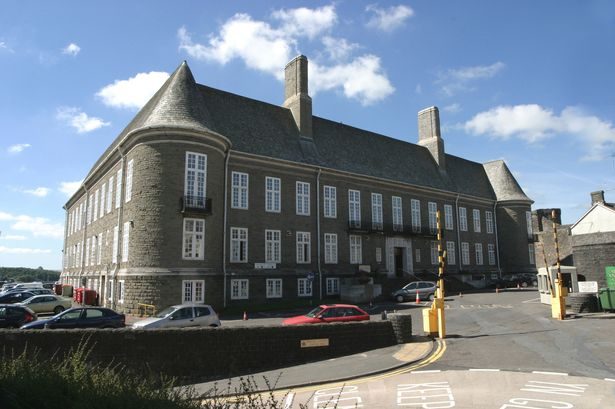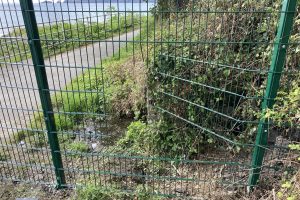COUNCIL tax in Carmarthenshire will go up by 7.5% in April after a majority of councillors approved the budget for 2024-25.
The Plaid-Independent-led council had originally envisaged a 6.5% rise but increased that by 1% after putting forward revised plans to defer some savings.
This was in response to a public consultation which more than 4,200 people responded to. Many were worried about the extent of the cuts proposed.
Speaking at meeting of full council, Plaid’s cabinet member for resources, Councillor Alun Lenny, said real-terms funding from central government, which pays for around 75% of the council’s day-to-day budget, had been falling for more than a decade.
He said the settlement for Carmarthenshire for 2024-25 was 3.5% higher than currently which, while welcome, was lower than inflation and nowhere enough to keep services operating at the same level. Savings and increases in charges of £10.8 million will need to be made.
Referring to the 7.5% council tax proposal, Cllr Lenny said: “While this is higher than any of us would have liked, I believe it strikes the right balance in terms of protecting vital services that the people of Carmarthenshire rely upon and look to the council to deliver each and every day.”
The Labour opposition group said it could not support the proposed budget. Setting out its concerns, Councillor Kevin Madge said the administration’s continuing use of reserves to help balance the budget was untenable, and he claimed that unless tougher decisions to plug the funding gap were taken, residents could face council tax increases of 15-20% in coming years.
“That would be totally unacceptable,” he said. “More people will need to go to food banks to make ends meet.”
The budget will see council departments spending £489.6m in 2024-25. The three highest spenders will be education and children’s services (£220.8m), although schools will get £2m less than this year, the communities department, which includes adult social care (£140.3m), and place and infrastructure (£76.8m).
Following accounting adjustments, plus the use of reserves, the net budget will be £473.2m. This sum will be fully funded by the Welsh Government, which is providing £350.6m, and local council taxpayers, who will stump up £122.6m.
It’ll mean Band D householders paying £1,602.79 – up from £1,490.97 – with the Dyfed-Powys Police precept pushing final council tax bills higher.
Cllr Lenny said only seven of Wales’s other 21 councils were proposing a lower council tax rise than Carmarthenshire’s.
Another bone of budget contention was a proposed £2m saving by making council departments hold a small proportion of jobs vacant.
This “vacancy factor” would save on workforce costs, but Labour said it would increase workload pressure and in turn increase sickness absence rates.
Plaid’s Kim Broom said setting the budget had probably never been harder, and put it to Labour that its UK leader Sir Keir Starmer hadn’t said if he would increase funding for public services if his party wins this year’s general election.
“Wales has been very loyal to Labour, well, for ever, and it’s high time this loyalty was repaid,” she said.
Councillor Gareth John, also of Plaid, said everyone had concerns about some of the budget proposals but Labour hadn’t put forward alternative ones. Addressing the opposition, he said: “Where are your proposals? What would you do if you were in this position?”
Labour councillor Rob James said his party had submitted alternative budget proposals last year, including some for future years, but that they hadn’t been taken forward.
He said the proposed 2024-25 budget “kicks the can down the road” in terms of tough decisions and seemed to rely on a new UK Labour government sorting out the problems.
“You have been elected – you have to carry the can as well,” he said, addressing Plaid.
Independent councillor Giles Morgan pointed out councils legally had to balance their books while health boards didn’t.
He acknowledged the NHS saved lives, but argued councils also did by providing vital social care. He also branded Cllr Madge’s suggestion that food bank use would increase due to a 7.5% council tax rise as “sensationalising the budget”.
Councillor Glynog Davies, Plaid cabinet member for education, said he hadn’t wanted to become a councillor to make savings but the authority was being “forced to cut and cut severely”.
He said: “These cuts could be damaging – I have grave concerns as cabinet member for education, but we are doing our utmost, we are doing our best.”
He said extra uplifts to teachers’ salaries agreed by the Welsh Government were costing the council an extra £3m over two years.
Continuing the schools’ theme, Labour councillor Gary Jones said Carmarthenshire has 12 schools with fewer than 50 pupils and 15 with fewer than 100 pupils, and these were expensive to run.
Plaid council leader Darren Price said closing Drefach Primary School, which has fewer than 50 pupils, would only save about £70,000 in energy and premises costs. He is a governor of the school and stressed there were no plans to shut it.
Cllr Price said Carmarthenshire has a larger school footprint than the Wales average but school reorganisation would not be the silver savings bullet.
He added Labour seemed to be against increasing council tax, using reserves, and the prospect of cuts to services, and that this defied economic reality.
He said: “These are the only three options that we have open to us as cabinet. That is the fact of the matter.”
Councillor Deryk Cundy, the Labour group’s new leader, said the savings proposals put forward by the administration had hidden human costs, and it had been impossible for him and his colleagues to come up with alternative ones because they weren’t privy to the latest departmental spending figures.
Cllr Cundy pointed out that the Welsh Labour Government was handing the council more money next year than currently, and he questioned the £2m saving by keeping some council posts unfilled.
“That’s £2m not coming into the local economy,” he said.




















